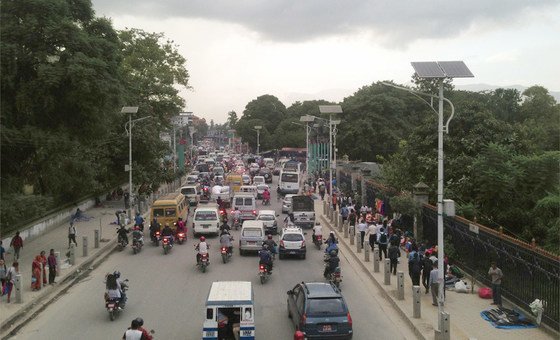“To be strong partners of countries as they deliver the 2030 Agenda – across all SDGs (Sustainable Development Goals) – the United Nations too must change,” Amina Mohammed, Deputy Secretary-General, said Wednesday at a high-level panel onTransformational Energy Access in LDCs, organized in Geneva by the UN Conference on Trade and Development (UNCTAD).
“But together, the United Nations development system offers unapparelled expertise and global reach,” she added.
Ms. Mohammed spoke compellingly on how the SDGs interrelate. She highlighted the importance of SDG7 on affordable and clean energy for all, saying that advancing the energy transition is “the golden thread that links most of the SDGs.”
She referred to universal access to modern energy as a catalyst of inclusivity, underscoring that it improves livelihoods and social mobility, gender equality and women’s empowerment; aids access to clean water and refrigeration; and, by powering medical facilities, enables the safe storage of medicines and vaccines.
“Reaching SDG7 therefore contributes to SDG3 on good health and well-being,” the UN deputy chief explained.
In rural areas of LDCs, women are typically overburdened with household and unpaid work, including fetching water, gathering firewood, and preparing food.
Least developed countries are low-income countries confronting severe structural impediments to sustainable development. They are highly vulnerable to economic and environmental shocks and have low levels of human assets. According to the UN, there are currently 47 countries classified as least developed.
“The availability of modern energy can significantly reduce time spent on these activities and contribute to achieving SDG5 on gender equality,” she asserted.
“In addition to social benefits, SDG7 is also at the core of the economic SDGs, namely Goals 8, 9 and 10, helping to increase productivity, enable production and innovation, and reduce inequality,” she continued.
Universal access to modern energy is essential to the 2030 Agenda and its core pledge of ‘leaving no one behind — UN deputy chief Amina Mohammed
Renewable energy, such as wind and solar, has brought costs down and opening opportunities for electricity in rural areas, accelerating rural development.
“And, by enhancing agricultural productivity and food security, it will lead to SDG2 on ending hunger,” stressed Ms. Mohammed.
However, providing the required finance for SDG7 and for transferring the necessary technology, is a huge undertaking that requires national policies and stronger international support.
“Achieving universal access to modern energy in LDCs by 2030 will be costly,” she affirmed. “It will require investments between $12 and $40 billion dollars a year.”
While expanding international trade and investment has helped, effective technology transfer that enables LDCs to leapfrog to the constantly evolving renewable technologies for sustainable energy is a challenge.
Ms. Mohammed argued that South-South and triangular cooperation must play a leading role in promoting better Science Technology and Innovation policy cooperation and encourage maximum use of existing mechanisms for technology transfer.
“Together, we can also help countries leverage financing and partnerships at a scale we have never reached before,” she underscored. “To do that, we must become more than the sum of our parts.”
“Universal access to modern energy is essential to the 2030 Agenda and its core pledge of ‘leaving no one behind,’” concluded the Deputy Secretary-Secretary.

